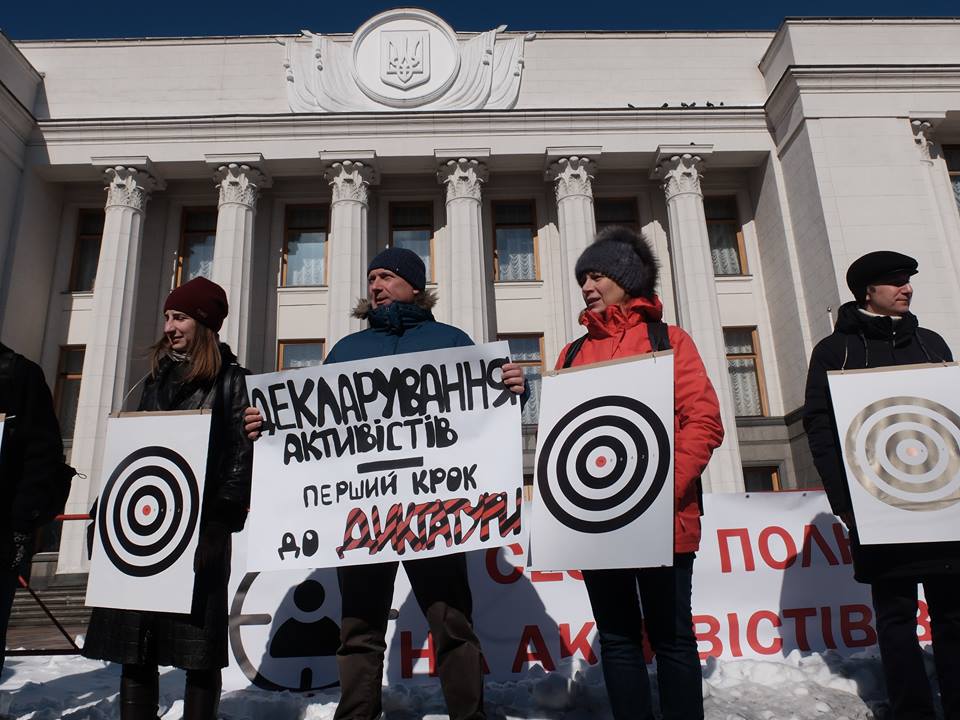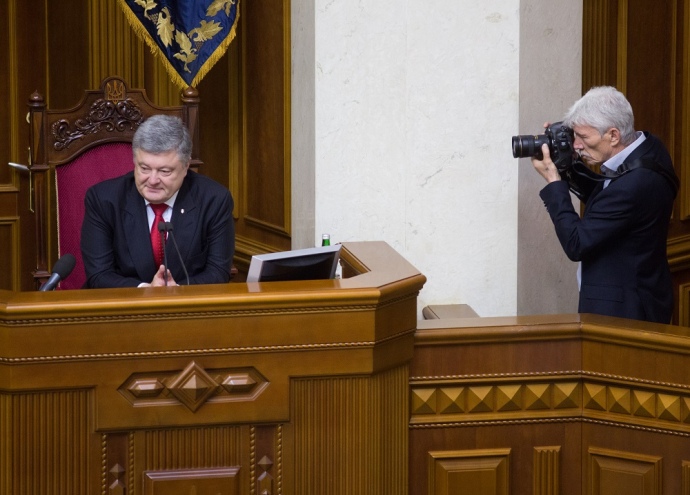The “Amendments to the Law of Ukraine on Prevention of Corruption” requiring anti-corruption activists to declare their assets on par with state officials, signed on 27 March 2017 by President Petro Poroshenko, raised questions from the start: unlike state officials, activists don’t receive state money. But they might be prosecuted if they don’t submit electronic declarations exposing their wealth. The amendments drew harsh criticism from Ukraine's western partners, and Poroshenko himself claimed they should be canceled.
Nevertheless, they came into force on 1 April 2018. The online declarations of the anti-corruption activists are now being debated far and wide in Ukraine, as salaries of well-known activists are much higher than that of an average Ukrainian ($1,300-3,000 vs $300 a month).
Activists are sure that this was the initial goal of the amendments, and it was achieved: public attention was diverted from more substantial issues.
“They [the authorities - Ed] artificially created a problem and now it’s the only thing they discuss, diverting attention from more substantial issus like judicial reform, anti-corruption court, automatic verification of declarations of public officials,” says Anastasia Krasnosilska, an advocacy manager at the Anti-Corruption Action Centre (ANTAC).
The activists see no chances of canceling of e-declarations for public activists. Also, Krasnosilska emphasizes that her organization does not advocate for canceling it:
“Of course, we do not support it. But we do not see possibility to invest resources in that because other burning issues like the creation of the anti-corruption court are on the agenda.”
The director of DEJURE Foundation and a member of the Public Integrity Council Mykhailo Zhernakov ascertains the fact that the law does affect the public image of the activists:
“Civil society groups and NGOs enjoy the role of one of the most trusted public institutions. Now the news say 'Oh, imagine someone has $2,000 salary.' It's legal, it doesn't come from the state budget, taxes from it are paid to the state budget. But people still see it as a bad thing. And we expect that all of that will, of course, undermine societal trust in these NGOs.”
The activists agree that the amendments pose the main risk to local and regional anti-corruption activists whom the public knows less about.
“We are ready to protect every activist who does not comply with this law because in fact there is still no clear understanding for many activists whether they are subjects of the declarations,” says Zhernakov.
Activists had predicted the scenario unfolding now long ago: despite the president and his party creating a visibility of a desire to cancel the amendments, no compromise with the activists was found.
Even after the bill came into force, Petro Poroshenko’s Bloc voiced the intention to vote for a bill suggesting to postpone the submission of e-declarations to the activists.
There were several
possible bills the MPs could have voted for. The one suggested by an MP from Petro Poroshenko’s Bloc suggesting to postpone it for a year. A bill by another MP from Poroshenko’s Bloc suggested to postpone the e-declarations for activists for three months. A bill initiated by an MP from Batkivshchyna, Yuliya Tymoshenko’s party, should have canceled the declarations for the anti-corruption activists overall and freed them from legal liability for not submitting them.
However, in the end there were not enough votes in the Parliament even to include the proposed bills to the agenda.
Read more:





